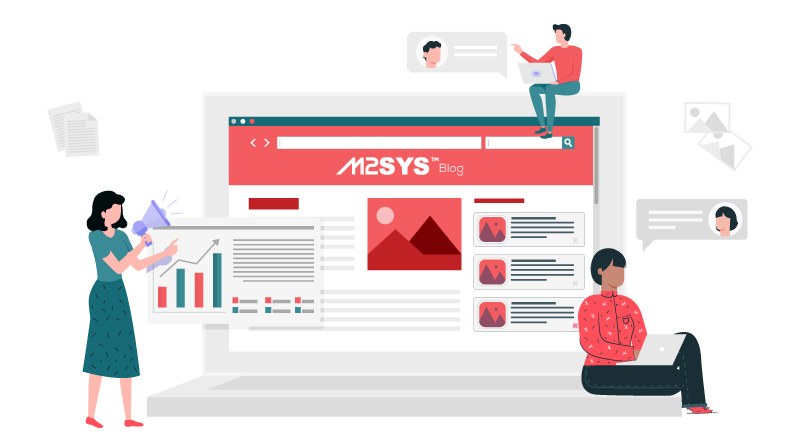Why Your Health Insurance Company Needs Modernized Technology Now More Than Ever Before
At this point, the transformative impact that modern technology has had – and continues to have – on businesses, especially those in the financial services industry, is undeniable. Automation, cloud computing, and digitization are only a few of the advancements that have allowed enterprises in the fields of banking, insurance, and finance to flourish and thrive in a fast-paced environment that is only becoming more and more globalized and complex. The insurance industry, in particular, has grown increasingly reliant on digital technology to develop products, assess claims, and make improvements to the overall customer experience.
However, there are always new challenges to overcome. Difficulties brought on by the COVID-19 pandemic, for example, have shown that there is a dire need for health insurance companies to increase operational efficiency and increase plan management precision while still keeping their clients at the center of their business. Here are a few of the reasons why your health insurance company would greatly benefit from utilizing a modern health insurance solution:
Improved Claims Processing and Management
Claims management is the area of the healthcare life cycle where the opportunities are great but the stakes are just as high. According to the 2019 American Customer Satisfaction Index, health insurance companies ranked close to the bottom, on the same level as airlines and just below cellular phone service providers.
This standing is due to numerous contributing factors, certainly, but claims are a major part of the issue. When looking at specific benchmarks related to customer satisfaction, many respondents felt that health insurance companies are sorely lacking when it comes to the timeliness of claims payments. Indeed, with consumers and plan sponsors paying more for premiums and out-of-pocket costs than ever before, such quality of service is deemed unacceptable. Put simply, customers want to make the most out of every dollar they pay their health insurance companies and believe that they deserve a better claims experience.
The major problem that is standing in the way of a better claims experience is the fact that claims processing tends to be expensive for both participating providers and health insurers. In the United States, the medical industry spends 4.5 billion dollars every year on claim submissions, a figure that represents 13 percent of the total medical industry’s expenditures on administrative transactions. Claim status inquiries can also be costly, as these are the second most expensive type of transaction to conduct manually and electronically for the industry.
However, going fully electronic with claims processing and submissions would allow the healthcare sector to save up to 454 million dollars annually – 99 million dollars for plans and 355 million dollars for providers. It can also save 2.2 billion dollars or just over 42 percent of the existing spend on claim status inquiries by moving both manual and partially electronic web portal claims status inquiries to a fully electronic system. Employing a state-of-the-art digital solution is, clearly, a win-win for both your healthcare insurance company and its customers.
Healthcare providers, on the other hand, are also working to improve claims they send over to insurance companies. Many of them are using RightPatient to ensure that accurate claims are being sent after identifying patients properly during the caregiving process, reducing the chances of denied claims.
Allows Your Company to Establish a Solid Foundation in Emerging Markets
Public health systems in many countries around the world tend to be grossly underfunded. In countries like Hungary, Poland, and Romania, for example, more and more people are turning to private health insurance to address their needs.
The numbers look promising: Romania’s private healthcare industry grew nearly 14 percent between 2017 and 2018. Meanwhile, health spending from private sources in Kenya tripled between 2010 and 2014. Additionally, estimates indicate that spending on private health insurance in Nigeria will grow to 530 million US dollars in 2021. Finally, in Brazil, privately insured individuals currently represent a quarter of the entire country’s population, a number that is only expected to grow in the coming years.
All over the world, there are opportunities for a health insurance company to expand and establish itself. Entering an emerging market with a state-of-the-art system and modern claims infrastructure can put you in the best position to create a solid foundation for growth and reap the resulting rewards.
Reap the Benefits of Cloud Computing
Most insurers are well aware that the technology they use for many of their day-to-day business activities is now severely outdated. These include vital systems for new insurance underwriting, policy management and administration, claims processing, billing, and more.
Despite being slow and antiquated, though, many health insurance companies continue to cling to these aging legacy systems, citing “stability” and “reliability” while ignoring the problems. Most are reluctant about an enterprise-wide systems overhaul, assuming that such a move would be highly disruptive and time-consuming for the business, not to mention extremely expensive.
A modern health insurance software suite that incorporates cloud services can be a cost-effective and secure solution to the problem of modernizing timeworn legacy systems. In addition to scalability as well as the ability to adjust to the industry’s rapid and ever-changing demands, cloud computing can empower health insurance companies with faster deployments, increased agent productivity, and better collaboration between stakeholders. Cloud deployments also average a 2.3 times lower total cost of ownership compared to on-site systems.
The benefits of making use of modern technologies in health insurance are clearly apparent. Improving business operations with a comprehensive, state-of-the-art health insurance solution can only lead to the development of better products and improved experiences for the customer while allowing a health insurance company to remain flexible, dynamic, and competitive in an ever-changing world.











